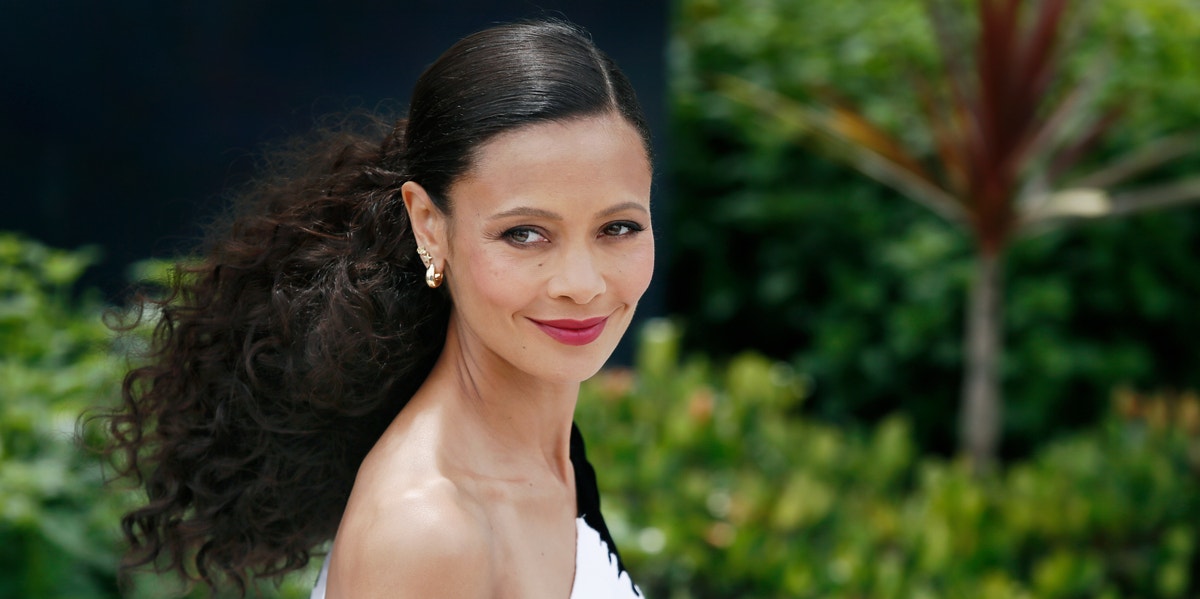Why Thandiwe Newton Is Reclaiming Her Real Name After 30 Years
It all started with a typo.
 Andrea Raffin / Shutterstock
Andrea Raffin / Shutterstock On the cover of British Vogue, Thandiwe Newton stands confident in vibrant colors and patterns that practically dance on her frame.
For this occasion, Newton wanted her cover shoot to reflect both of her heritages. And in this interview, she tells the world that her name is Thandiwe (pronounced tan-DEE-way), not Thandie, a mistake at long last corrected after 30 years.
“That’s my name. It’s always been my name. I’m taking back what’s mine.”
Newton is a British-born actress whose roots trace back to both British and African royalty. Her mother is a princess, as the daughter of a chief of the Shona tribe in Zimbabwe.
Thandiwe means "beloved" in Zulu, which will be a particularly point of reference for fans of her moving performance in the title role of the 1998 film adaptation of Toni Morrison's novel, "Beloved."
Born Melanie Thandiwe Parker, she was well known for her former stage name Thandie Newton.
During her first film, Flirting, in which she starred alongside Nicole Kidman and Noah Taylor, her name Thandiwe was misspelled in the credits as Thandie.
For the last 30 years, that is how the world has known her, even as she became famous in her own right thanks to projects like Crash, Solo: A Star Wars Story, Mission: Impossible II, Westworld, and more.
Newton is no stranger to having her sense of self be a topic of discourse in Hollywood. She has spoken out against colorism and how it has affected her over the years.
In the British Vogue interview, she recounts a conversation with Flirting director John Duigan while she was working on the film.
He asked her, "Can you be a bit darker?”
“I dunno,” she replied.
He told her, “Be darker by Monday."
Newton notes that during her time as an actress she has been perceived as too dark or too light.
The simplification of her Shona name, meaning "beloved," seemed to set the tone that her identity should be malleable and up for interpretation.
Colorism in Hollywood creates limitations for what Black people can and can’t do and how people with different skin tones are allowed to express themselves.
While filming Flirting, Newton says she was also coerced into a relationship with Duigan. He was 39 at the time — and she was just 16.
At 18, she was taken advantage of by a casting director who instructed her to do sexually explicit things that he recorded and later showed to his colleagues.
Today, Newton is vocal against sexual abuse in the film industry, to the point of having to terminate a contract with a publicist who she says "begged" her to stop speaking out for fear it would hurt her reputation.
True to her character, she has refused roles that she believed to be racially or sexually demeaning.
Certain values are put on actors and actresses so they fit into preconceived notions of Blackness created by white creators to entertain white audiences.
The erasure of Newton's true name represents that very clearly.
By taking it back, Thandiwe Newton is reclaiming how she expresses herself, and how she brings close to her the importance of her Shona heritage.
Leeann Reed is a writer who covers news, pop culture, and love, and relationship topics.

